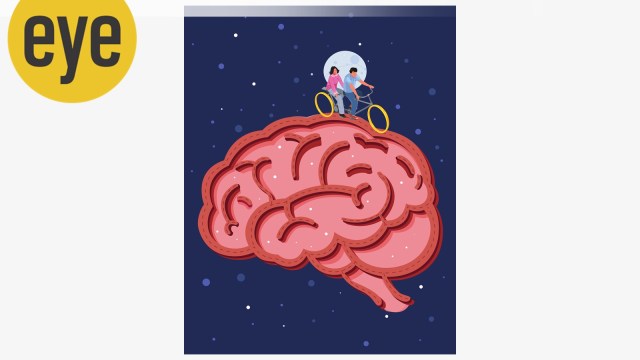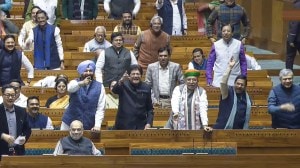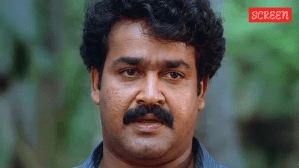To marry or not to marry: What’s stopping young urban Indians from saying ‘I do’
Young urban Indians are choosing to lead fulfilling family lives without marriage as a goalpost. A look at reasons driving this trend
 It’s impossible to have a perfect marriage in an imperfect world but then can’t there be a marriage of minds? (Credit: Illustration: Komal)
It’s impossible to have a perfect marriage in an imperfect world but then can’t there be a marriage of minds? (Credit: Illustration: Komal)Thirty-five-year old Anirban Sen has redrawn his life alongside the crayons and colouring books of his twin sons. A top-notch IT professional in Mumbai, he’s back home by their study hour, takes care of their playdates and finishes remaining work after they sleep. Just like any other multi-tasking parent. Sen chose not to marry, had his boys through surrogacy in 2019, lives with his parents, has a tight group of friends and is open to companionship without strings.
“Marriage today has become a complex challenge. Everybody has their individual goals and pressures to deal with. And aligning them or accommodating each other without acrimony and regret is the toughest task. No one partner has to subduct the other. That stasis may take time and more importantly, the intent to find. If I find an equal companionship, I will honour it. But you do not need to marry to do so,” he says. Sen longed for a family early in life and wanted to become a father. But his then partner had other priorities. So he went for surrogacy the moment he was financially stable. “Not marrying doesn’t mean I am commitment-phobic. For me, parenting took precedence. We have a habit of idealising marriage as the only pivot of love. But that’s not true. Other bonds are equally fulfilling for a family life,” says Sen, who took a couple of years to get acceptance for his “parenthood without motherhood” way of life. “Some even thought I was a closet gay. But why should heterosexual people be expected to marry all the time?”
he asks.
Meanwhile Lavli Thakur, 38, from Bhagalpur, Bihar, has chosen singlehood as she lives with her two sisters in Delhi and runs an animal rescue NGO. “My partner and I wanted different things. I was surprised to find even married men masking their status on dating apps and choosing momentary flings,” adds Thakur, who tried out a matrimonial site at her parents’ insistence only to find most candidates interested in hook-ups. “Most marriages in my circle are a one-gender responsibility. I think it is far more important for women to focus on their finances, how much they can budget for their health and leisure as well as retirement without any dependencies. I still don’t mind a friendship but I would want to build enough resources so that I can afford some luxury in my old age. A full life lived on one’s own terms is not an antithesis to marriage, it’s just a parallel choice,” she says.
Both Sen and Thakur represent a growing number of young Indians in urban and semi-urban India who are choosing to lead fulfilling family lives without marriage. The National Statistics Office’s Youth in India Report 2022 has shown that 23 per cent of young people are not interested in marriage. Earlier, this figure was 17.2 per cent.
What’s underpinning the anxieties about marriage among young people? “That largely stems from economic factors,” says
Dr Shaunak Ajinkya, psychiatrist and relationship counsellor at Kokilaben Dhirubhai Ambani Hospital, Mumbai. Anecdotally, up to 20 per cent of his young patients are averse to marriage. “It is definitely not based on avoidance of responsibilities. If anything, young people are far more organised about mapping their lives. Both boys and girls are chasing career goals and want to achieve some sort of economic stability before they consider marriage. Some of them are taking care of student loans, some have high ambitions and are squaring off living costs, and, therefore, do not want to add to their financial burdens. Women, who continue to get ignored for mid-career promotions because they have a family, now want that position before settling down. Financial independence widens the bouquet of choices other than marriage. Those in non-mainstream professions, particularly those in the creative space, do not want to bet on an unpredictable future,” he adds.
The economic concerns, as documented by Dr Ajinkya, are many. “There was this mid-40ish couple who sacrificed their health insurance to set aside funds for the education of their offspring. Both denied themselves their me-time and indulgence. It affected their marriage,” he says. In this balancing act of aspiration and self-sacrifice for their children, marriage sometimes can take a back seat, especially among youngsters who have satisfying relationships with friends, family and colleagues. That’s why 27-year-old Sarthak Gupta has relocated from his job in Kolkata to his parental home in Noida and be secure in his homely comfort. “If you talk about settling down in life, I am very settled. I don’t need marriage for that. A woman should have an equal right to settle down in her own home. My partner wanted to prioritise the needs of her ageing parents and wanted to be around them than move in with me. That doesn’t stop her or me from being with each other as companions,” he argues.
Societally, women are demanding respectful space. Many of Thakur’s peers are choosing to be single, because they are finding it difficult to have faithful partners or intellectual equivalents. “You need to constantly fuel your marriage, give time to your partner and grow as people together. If you get sucked into chores and goal-chasing, the relationship suffers. It is human nature to seek affection and so marriages where partners do not give time to each other snap as they seek extramarital comfort zones. It’s better not to marry till you are in a position to handle these needs,” says Thakur.
The rising number of divorces and the legal baggage and stigma that come with it are deterrents. This is as much true in China where a recent Weibo hashtag about rejecting marriage generated 92 million views, with commenters citing divorce and domestic violence as reasons. Most women in India are sceptical for the same two reasons. Divorce in India, if not mutual, is both a psycho-social and economic drain. “Nobody wants to pick up the financial burden of a failed marriage,” says Dr Ajinkya. Usually, fears arising out of past break-ups, childhood trauma or sexual abuse, abandonment or any kind of unstable relationship within the family itself can pull many young people away from marriage. The good part is there is an awareness of it.
This is why the number of couples seeking pre-marital counselling at Pune psychiatrist Dr Pankaj Borade’s clinic keeps getting bigger. “Most couples are regular professionals, some of whom are driven by family pressures to enter into wedlock. And while everything may seem hunky dory, with the number of marriages going up, the number of divorces is also going up. Recent data from the National Family Health Survey indicates that the divorce rate in India has surged by 35 per cent over the past five years. The good thing is couples are at least thinking before taking the plunge that could cost both of them,” he says. Just a week ago, two 31-year-olds thrashed out their challenges with the girl concerned about relocating to another city. They decided to hit the pause button till they could align their priorities better. Another boy was worried about whether he could pleasure his new wife, both sexually and emotionally.
Both counsellors agree that opting out of marriage has become easier with the healthy acceptability of live-ins and social media itself normalising singledom and alternative relationships. However, that doesn’t mean marriage itself is under threat although it seems to have been weighed down by role-playing expectations. “For long, it has been the only sanctified and valid couple bond. Yet, in the new-age, relationships are seen as a matter of personal freedom and we need to project marriage as any other healthy interdependent relationship with benefits. It doesn’t need to be projected as an obligatory milestone of our lives but as an all-encompassing umbrella that embraces every kind of love. We have to normalise imperfections and stop overselling the dreaminess of a wedding,” says Dr Ajinkya.
Most dating apps are now going beyond casual hook-ups and have sub-categories for like-minded people to bond over shared activities and interests. “Couples can have a fulfilling life in whatever model they are subscribing to. And who knows, they may find their way to each other this way, too,” says Dr Ajinkya. Ad filmmaker Sangeeta Sinha, 38, who met her now-husband on the Bumble app, was certain she would never marry because she loved being a careerist. “Over coffee and dinner dates, we laid down our priorities. We had no expectations of each other and could just be our raw selves. And then we grew under each other’s skin enough to take the plunge,” she says.
Gupta himself feels that a marriage comes under the lens of a performance metric and puts pressure on youngsters like him to score high. “A relationship is meant to be evolutionary, it is not a drill,” he says.
A template exists in ancient Indian literature, which has many examples of healthy family structures of men and women who never married. The Brahmavadinis or women scholars, like Gargi, dedicated their lives to study and chose not to marry. Lilavati, the daughter of the famous mathematician Bhaskara II, was a single woman who used her knowledge of mathematics to support herself. The author of Ved Vyas, as depicted in Puranas, raised his son Suka on his own and never married. At the same time, gandharv unions, where the boy and girl pledged themselves to each other with Nature as witness, were respected and later sealed as a marriage. “The fact that alternative relationships existed in society did not take away from the sanctity of marriage. In fact, it normalised marriage as another union between consenting adults,” says Dr Ajinkya.
Dr Borade has an exercise in his pre-marital sessions. “There was this one couple who seemed to be in conflict over every issue. So I gave them a challenge every session, asking them to deal with it individually. Then I asked them to deal with it together. And the results surprised them. What they did together had the best of both. We make them focus on what they can do together despite their differences and demystify marriage as an everyday ritual of togetherness. That works for most,” he says.
Sen feels the more we level up marriage with other forms of human relationship, the less of a challenge it will feel. “It’s impossible to have a perfect marriage in an imperfect world but then can’t there be a marriage of minds?” he asks.
- 01
- 02
- 03
- 04
- 05































